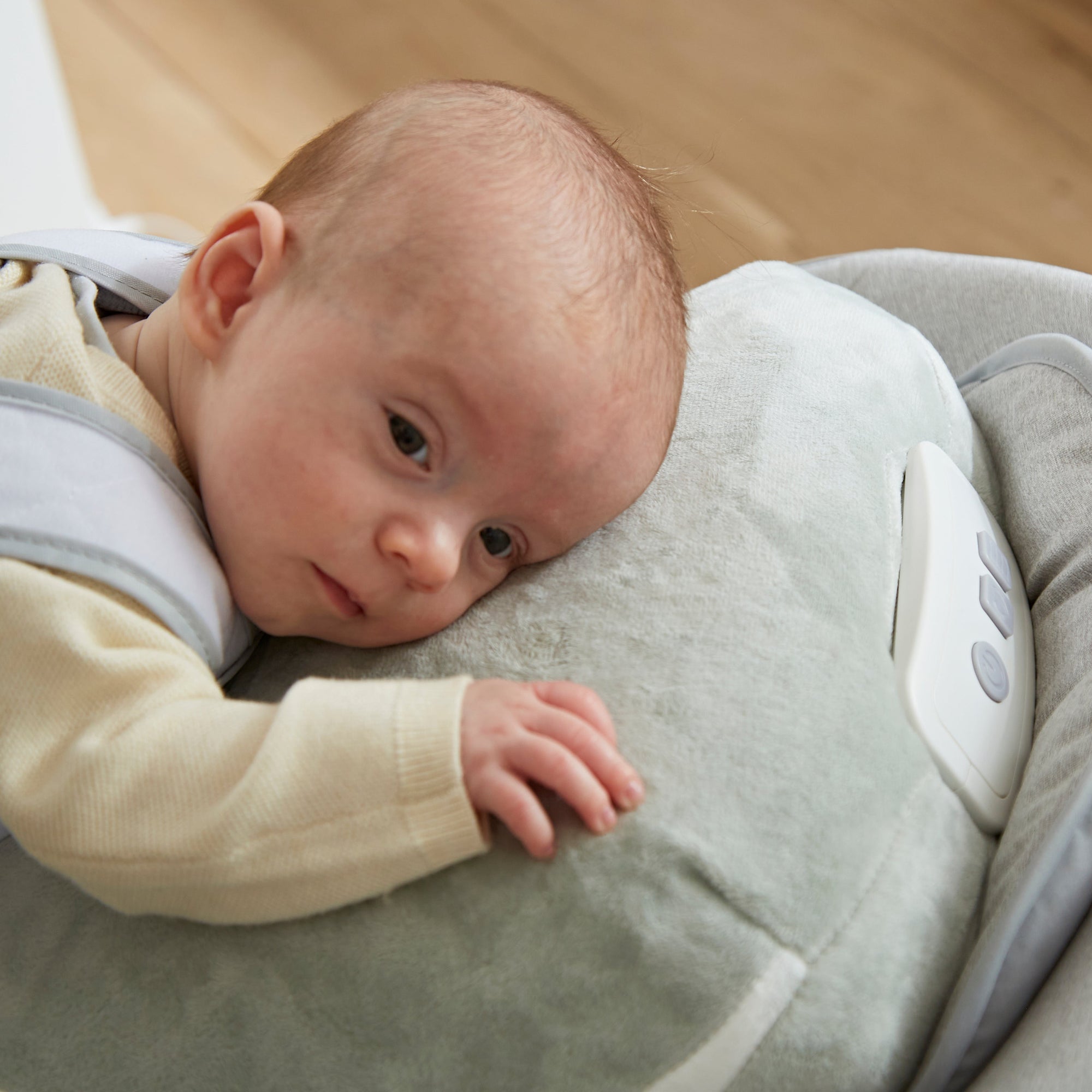Baby colic is every parent’s worst nightmare. We’re used to our babies crying, but there’s usually a reason for it. Colic is frequent, prolonged and intense crying or fussiness in a healthy infant with no apparent reason.
Thankfully, there are a couple of things you can do that might lessen the severity and duration of colic episodes and alleviate your own stress. Check out our seven tips to help you survive baby colic:

1. Wrap your baby in a swaddle
One of the best ways to soothe a crying baby is to wrap them up in a large, thin blanket, so that they feel secure and warm. Make sure you don’t wrap them too tight and allow their hands to be free so they don’t overheat. This can work wonders for your baby, and give you a period of respite! In fact, swaddling can encourage babies to sleep deeper and for longer.
If you want, you can pick your baby up in the blanket and rock them from side to side. A slow and smooth motion keeps babies calm. In the uterus, your baby is held and rocked 24/7 so even if you hold your baby 18 hours a day, it's a significant cutback for your baby. A study in the journal Pediatrics found that babies held by their parents for about 16.5 hours a day cried half as much as those whose parents held them for about 8 hours daily.
If you’re going to swaddle your baby, we recommend taking the following into consideration first:
- Temperature. Beware not to overheat your little one. Do not swaddle your baby if they have a temperature
- Material. Swaddling works best using thin materials for temperature regulation such as a cotton sheet or muslin square.
- Position & tightness. Do not swaddle above the shoulders and ensure materials don’t become loose, to prevent suffocation.
2. Lay them on a special cushion
Babies love being carried close to your chest. Babies who are carried more cry less, studies show. But, you don’t always have time to do this. As such, they will cry like there’s no tomorrow! Instead, you can try a specially designed cushion - like the Babocush. This comfort cushion is designed to mimic the feeling of your baby being close to your chest. The position they’re in, along with the internal vibrations and heart beat, is so relaxing, and it eases a lot of pressure on their tummy. This can help get rid of painful gas and reflux, leading to many calm and peaceful moments.

3. Carry your child stomach down
While your baby is awake, position them across your forearm or lap with their head resting in your hand. Babies find this position rather soothing and it can be easier to calm them. You can use the other hand to gently massage their back as well, providing extra comfort. Of course be careful and make sure they are safe. Experts believe babies love this position because your arm nestles on their stomach and helps them get rid of built-up gas. So, they can truly relax and feel a lot better. (Note: Babies should never sleep on their side or stomach, since this increases the risk of sudden infant death syndrome).
4. Go for a long drive
Normally, the prospect of driving with a crying baby is the stuff of nightmares. But, if you can’t figure out why your child keeps crying, then take them out your car. Strap them into their cozy seat, and just drive, Dr. Karp says. Mimicking womb-like sounds, driving help babies sleep longer. The motion and sound of the car will slowly make them feel more relaxed. If a drive is unsuccessful, the noise of a hairdryer or vacuum cleaner might do the trick. Though you may find these noises loud, babies find them comforting because they mimic what they heard in the uterus.
5. Give your baby a pacifier
Babies have a strong sucking urge in the first few months of life and satisfying that urge can quickly calm a fretful episode. Try giving your colicky baby a pacifier. While some breastfed babies may refuse it, it will provide instant relief for others.
If you’re going to use a pacifier for your baby, it’s important you’re aware of the difficulties some argue pacifiers can cause for breastfeeding babies. These include risk of nipple confusion as well as breast refusal and low milk supply. So if you are breastfeeding, be sure to keep an eye on your baby’s behavior.
6. Soothing sounds
Do you love to fall asleep to the sound of rain falling outside? Well, soothing sounds can also help your baby relax. Sounds that block outside stimulation like that sound of a running shower or sounds from a noise machine can help relax your little one into a deep sleep. In fact, the power of sound in soothing your baby is exactly why the Babocush Comfort Cushion has a built-in heartbeat sound to simulate the feeling of being in the womb.
7. Sing to your baby
Lastly, similar to playing soothing sounds, you should find some soothing lullabies to sing to your baby. Babies love music as well as the sound of their mom’s voice, especially when it’s soft and soothing. By singing to them, you actually get a bit of a release yourself. It’s weirdly relaxing, and there’s a chance you might both fall asleep! The more you do it, the more effective it becomes as your baby starts to recognize the songs and enjoy them.
Don’t let baby colic wreak havoc on your life! Most parents have to deal with this at some point, and it can go on for ages. With these tips, you can keep your sanity and ensure your little one calms down.
If you’re still struggling with baby colic after trying these tips, try out the Babocush Comfort Cushion, designed by a mom especially for babies suffering from symptoms of colic and reflux.


